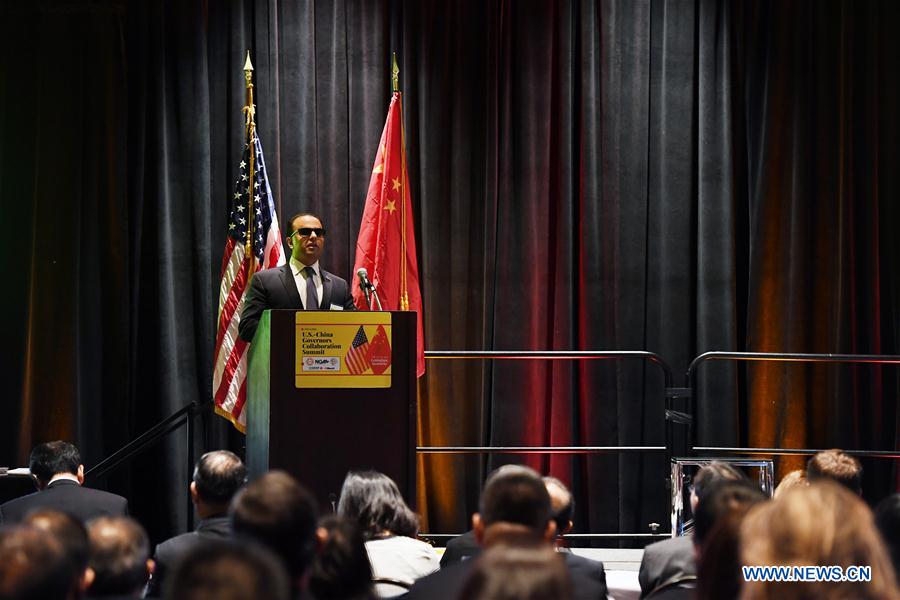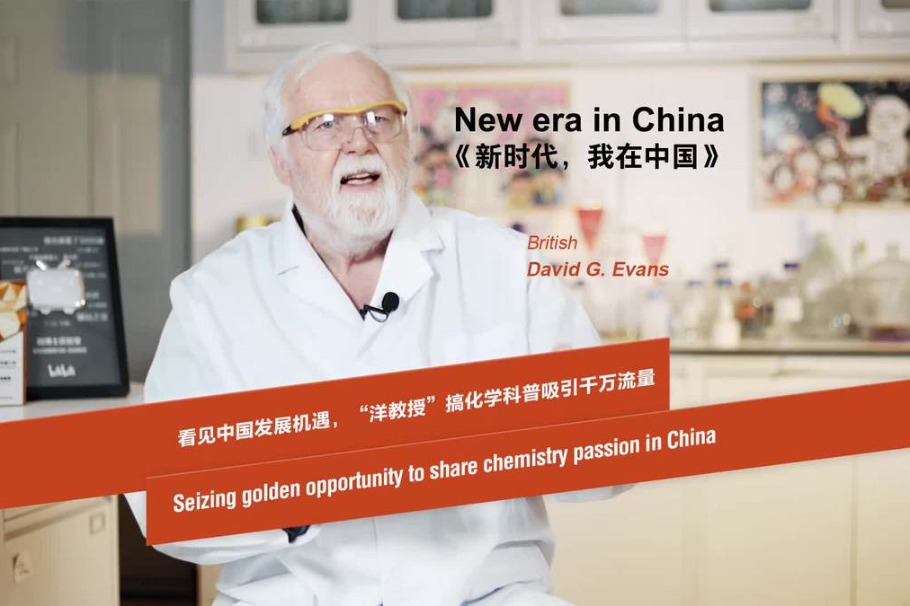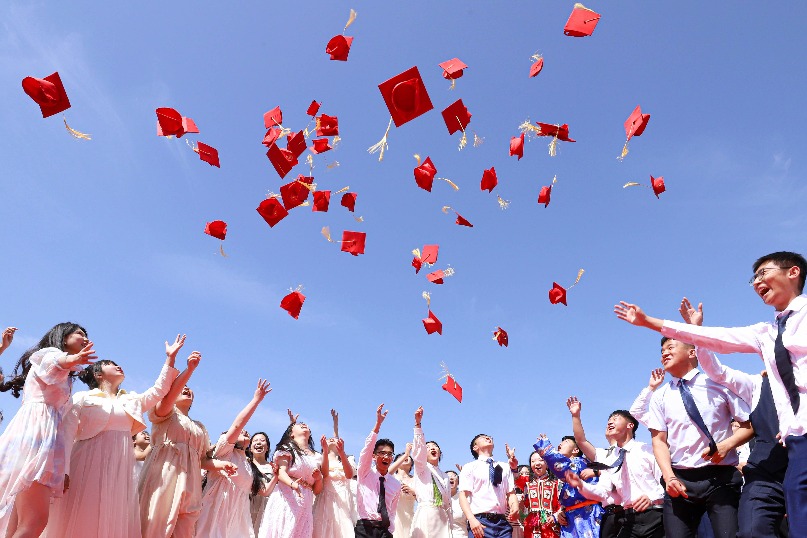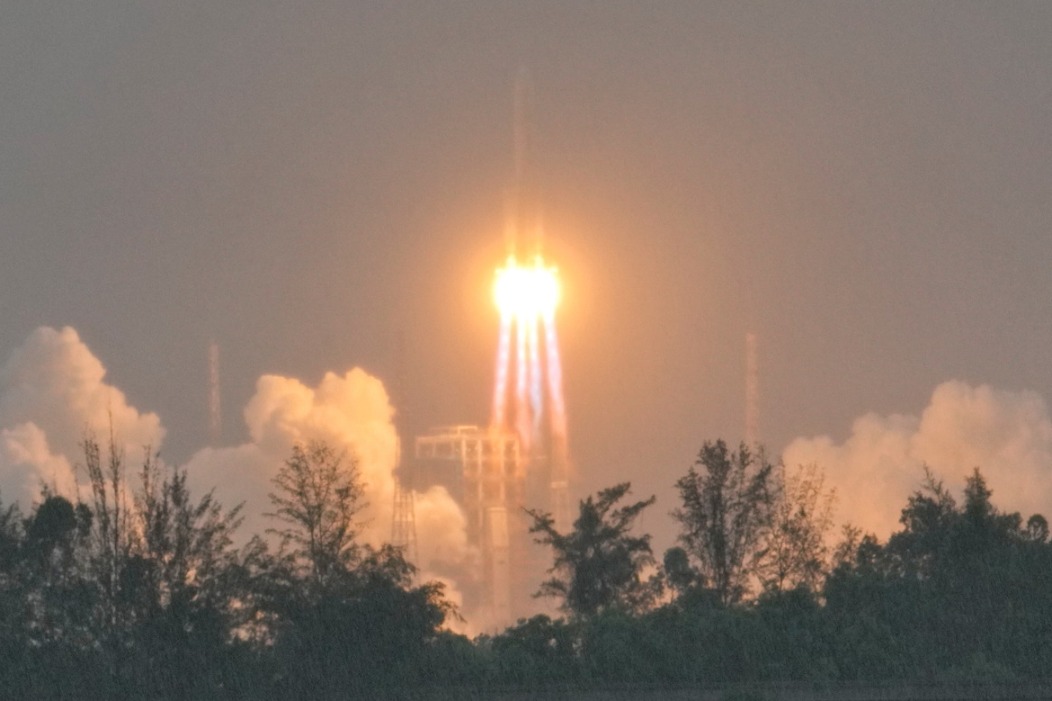Lt. governor: Washington-China ties crucial
By KONG WENZHENG in New York | China Daily Global | Updated: 2019-06-05 23:24

In September 2017, Cyrus Habib, the lieutenant governor of Washington who had then been in office for less than a year, went on his first overseas trip to China to celebrate and deepen the decades-long relationship with a nation that was "extremely significant" to his state.
Almost two years later, Habib remains optimistic about the relationship, despite the trade dispute between China and the US on the national level, and is committed to taking it farther, as the China-Washington relation "is truly something that touches every part of our state," he told China Daily while attending the Fifth China-US Governors Forum held in Kentucky on May 23.
Habib said the state of Washington and China have a relationship that "goes back so far."
"I don't think it's a coincidence that we have the first Chinese-American governor" in the US, he said, referring to Gary Locke, who served as governor of Washington for two terms starting in 1997, and "I don't think it's a coincidence that we have so many, successful Chinese businesses - tiny ones all the way up to the presence of Tencent and Alibaba in our state," said Habib.
There were Chinese immigrants in Washington even before the founding of the state, he said, and in October 1982, three years after the establishment of China-US diplomatic ties, Washington established a sister-state relationship with China's Sichuan province.
Over the decades, the relationship extended cooperation in industries, including business and trade, environmental protection and education.
China has developed into Washington's top trading partner with more than 20 percent of the US state's exports going to China and around 30 percent of its imports coming from China in 2018, both the largest among all nations according to US census bureau.
Foreign direct investment, too, is one important pillar of Washington's international economic development, according to Habib, and "we have everything from high-tech to real estate and other Chinese firms that have made investments in our state, and we think that is a good thing," he said.
"What we try to do is establish relationships so that it's not 'somebody investing from far away with no connections'," said Habib, who visited investors during his 2017 visit to China, because "we want to really get to know, on a personal level, the people who are helping to create jobs in our state."
In his speech during the 2019 governors forum, Habib addressed the hundreds of Chinese attendees - governors and business leaders - about how Washington was ranked the top state in the US by US News & World Report based on criteria including healthcare, education, economy and opportunity.
"We think the more that they understand our region, the more they're going to be able to see the value there, and the more they can be part of our community," he said of Chinese businesses, whose investments are "positive and beneficial" to the state.
The China-Washington relationship has a strong focus on clean energy, which started when the state of Washington and the University of Washington went together with China's Sichuan province and Tsinghua University to sign a "2+2" memorandum of understanding during Chinese President Xi Jinping's visit to the state in 2015.
The four parties vowed together to facilitate research and testing on clean energy.
Habib in his 2017 visit renewed the agreement and expanded to areas like smart cities. Also in 2017, Microsoft, China's Tsinghua University and the University of Washington launched together the Global Innovation Exchange project, a technology platform that facilitates cross-border innovations.
Beyond the governmental, business and institutional relationships, Habib also recognized people-to-people exchanges that went on through robust tourism, educational exchanges and cultural products, like the Chinese film series Finding Mr. Right - whose Chinese name is literally "Beijing Meets Seattle" - that introduced Washington to the Chinese audiences.
"We love to have exchanges from high school all the way to faculty and professors," he said, "so many students that come and study at our universities, and we love that."
For Habib, those are all examples of how sub-national level relations can develop between China and the US, which he is seeing "an increased interest and focus" from both sides.
While the federal government has "a central role in policymaking and in facilitating funding [of] different initiatives, the states and then cities are so close to the businesses and the business clusters" and funds the public university system, said Habib, adding that "they have a very strong role to play."
"We have a really, really important role to play in introducing our culture and [political] system to the Chinese, and also being good ambassadors and intermediaries," said Habib.
While Habib said he is "frustrated" over the current China-US trade dispute as Washington's exporters are hit by the retaliatory tariffs imposed by China on US products as an answer to President Trump's 25 percent tariffs on $250 billion worth of Chinese imports, he is "very optimistic" about the future of the relationship, which has lasted 40 years.
"In that time, though sometimes different issues have come up, generally we've always been getting closer to one another through mutual understanding, through exactly these kinds of exchanges," said Habib whose hope has been that "Beijing and Washington work together every day until this is resolved."
For his part as a state official, Habib said he is looking to also deepen the ties on a sub-national level.
Planning to visit China for the fourth time in early July for the 2019 Summer Davos Forum - also known as the Annual Meeting of the New Champions - to be held in northeastern city Dalian, Habib said he is bringing with him the question, "Where are opportunities for mutual benefits?"
As a three-time cancer survivor, Habib has seen opportunities in the healthcare industry. Washington has "a number of the country's leading healthcare research institutes" while China has not only vast needs due to the immense size of its aging population, but also talents excelling in math and science.
"I'm very open to what we can do in the area of life sciences - we know it's an area for job growth, but more importantly, it's going to save lives," he said.
"And I really think the rest of the world is going to look to us" in areas like healthcare, climate change, and poverty alleviation, said Habib.
Habib believed that while all of those can benefit from national government support, none of them absolutely needs to start with national government support.
"For us in Washington, we can start that with our universities; we can start that with our state government, with city governments, with our schools, with our companies," said Habib, and he encouraged the two countries to "move forward with a new and more solid understanding on trade and then building on that grow our collaboration together on these other global challenges," he said.
























